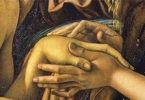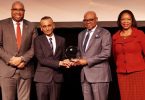Nashville has a vibrant music and entertainment scene spanning a variety of genres. The Tennessee Performing Arts Center is the major performing arts center of the city. It is the home of the Tennessee Repertory Theatre, the Nashville Opera, the Music City Drum and Bugle Corps, and the Nashville Ballet. In September 2006, the Schermerhorn Symphony Center opened as the home of the Nashville Symphony.
As the city’s name itself is a metonym for the country music industry, many popular tourist sites involve country music, including the Country Music Hall of Fame and Museum, Belcourt Theatre, and Ryman Auditorium. Ryman was home to the Grand Ole Opry until 1974 when the show moved to the Grand Ole Opry House, 9 miles (14 km) east of downtown. The Opry plays there several times a week, except for an annual winter run at the Ryman.
Numerous music clubs and honky-tonk bars can be found in downtown Nashville, especially the area encompassing Lower Broadway, Second Avenue, and Printer’s Alley, which is often referred to as “the District”.[25][26]
Each year, the CMA Music Festival (formerly known as Fan Fair) brings thousands of country fans to the city. The Tennessee State Fair is also held annually in September.
Nashville was once home of television shows such as Hee Haw and Pop! Goes the Country, as well as The Nashville Network. Country Music Television, RFD TV, and Great American Country currently operate from Nashville. The city was also home to the Opryland USA theme park, which operated from 1972 to 1997 before being closed by its owners (Gaylord Entertainment Company) and soon after demolished to make room for the Opry Mills mega-shopping mall.
The Christian pop and rock music industry is based along Nashville’s Music Row, with a great influence in neighboring Williamson County. The Christian record companies include EMI Christian Music Group, Provident Label Group and Word Records.
Music Row houses many gospel music, and Contemporary Christian music companies centered around 16th and 17th Avenues South.
Kirk Whalum visiting the audience at a riverfront concert in 2007
Although Nashville was never known as a jazz town, it did have many great jazz bands, including The Nashville Jazz Machine led by Dave Converse and its current version, the Nashville Jazz Orchestra, led by Jim Williamson, as well as The Establishment, led by Billy Adair. The Francis Craig Orchestra entertained Nashvillians from 1929 to 1945 from the Oak Bar and Grille Room in the Hermitage Hotel. Craig’s orchestra was also the first to broadcast over local radio station WSM-AM and enjoyed phenomenal success with a 12-year show on the NBC Radio Network. In the late 1930s, he introduced a newcomer, Dinah Shore, a local graduate of Hume Fogg High School and Vanderbilt University.
The Music City Bowl has seen a large disparity in the number of out-of-town visitors it attracts and its impact on the local economy since it shifted to the format pitting a team from the Southeastern Conference against a team from the Atlantic Coast Conference. Ole Miss, from about four hours away in Oxford, Miss., plays Georgia Tech in this year’s game.
At its high point in 2007, the bowl game, which featured Kentucky and Florida State, attracted 53,556 out-of-town fans and had a a $27 million impact on the local economy. At the other end of the spectrum, the 2008 game between Vanderbilt and Boston College brought in 17,498 fans and had a $9 million economic impact.
“The disparity you see is a ratio of local to out-of-towners,” said Scott Ramsey, president and CEO of the Nashville Sports Council. “With Vanderbilt in the game, it was a heavy local crowd — less hotel stays and less overall spending per person.”
Conversely, Ramsey said, Mississippi State fans in 2011 “actually stayed longer than our average. They were averaging two- or three-night stays, so on average that’s a long stay. They were spending rather than $200 for one day, $240 per day for three or four days times 15,000 people.”
Butch Spyridon, president of the Nashville Convention & Visitors Corp., said this year’s game should be more in line with previous bowl matchups. Music City Bowl games not featuring hometown Vanderbilt have typically cleared $20 million in economic impact, according to research provided by the Nashville Sports Council.
Ole Miss went 7-5 this season under second-year coach Hugh Freeze, after a 7-6 season and a bowl win in 2012.
Spyridon said with the needle pointing up for the Rebels, fans are more inclined to take a long-weekend trip to Nashville to see their team play Dec. 30. Both the Predators and Titans are also in town that weekend.
“The Music City Bowl is an extremely important strategic creation in looking at the end of the year, (which) was very slow for visitors,” Spyridon said. “We felt like we could build something and you could take a very slow time of year and create a national annual event that is victim to what teams come in. But year in and year out, it has proven to be extremely viable as a visitor draw and a marketing tool, and as a bowl game.”
Tourism officials feel that putting the bowl game on Dec. 29 or Dec. 30 gives visiting fans the option of extending their trip to celebrate New Year’s.
“We have a chance to make this a three- or four-day end-of-the-year event, whereas 15 years ago it was a zero-day event,” Spyridon said. “I talked to the Omni (on Monday), and right off the bat in one day they sold 100 rooms for three nights.
“You need a team on the rise that met or exceeded expectations. We’ve never had a lot of luck drawing real well from the ACC, but more often than not, the SEC is good for us.”
(eTN): Nashville tourism industry awaits Music City Bowl | re-post license | post content






















